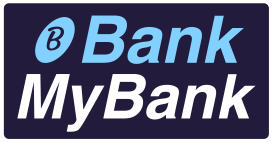A current account, otherwise called a financial account is a kind of deposit account kept up by people who complete a fundamentally higher number of exchanges with banks all the time. It is made by the bank on solicitation of the candidate and is made accessible for visits or quick access.
Current accounts are linked to liquid deposits and provide a wide range of customized options to assist with financial transactions. Current accounts also allow for installments to be made to loan managers using the bank’s check services.
When compared to a savings bank account, current accounts usually do not pay interest and have a higher minimum balance requirement. Nonetheless, the best-preferred position of the current bank account is that account holders can profit from an overdraft facility without much of a stretch up to a predetermined limit.
Read More: HDFC E-Insurance: Benefits and Features
A Current Bank Account’s Highlights
One of the most important requirements for starting a business is having a current bank account. To meet the increased needs of businesses, banks now offer a variety of enticing offers and benefits on current accounts. A portion of the main highlights of a current bank account are listed below:
- A current account allows for transactions that go beyond the scope of an investment account.
- In comparison to a savings account, a current account has a greater minimum balance requirement.
- Its purpose is to encourage people to go to exchanges to shift reserves, acquire checks, and money, among other things.
- People, restrictive concerns, open and privately owned businesses, affiliations, trusts, and other entities can all work using a current account.
- There is no limit to the amount of trades you can make in a single day.
- Non-maintenance of the base parity may result in penalties.
- In any case, KYC regulations must be followed for current accounts, just as they must be followed for bank accounts.
Benefits of a Current Consideration Takes into account quick business transactions
- There are no restrictions on withdrawals.
- There are no limitations on stores in the home branch.
- Allows companies to make direct payments using checks, request drafts, or money orders.
- Allows for overdraft.
- Provides online and mobile banking services.
Different Types of Current Accounts
Banks offer a variety of current accounts to meet the diverse demands of its customers. Before you open a current account, you should have a clear understanding of the transactions you want to make. Here are a few of the most common types of current accounts provided by banks:
Current Accounts (Standard)
It’s a type of non-interest-bearing current account with low minimum balance requirements and a set monthly regular balance. Checkbooks, platinum cards, overdraft facilities, and other services are available. Other features could include internet banking, SMS banking, free RTGS and NEFT transfers, and so on.
Packaged Current Accounts
Packaged current accounts provide account holders with a slew of benefits. It includes added features such as travel protection, clinical assistance, and emergency assistance, among others.
Cash Book with a Single Column
Simple money accounts or single column cash book accounts consider day-to-day transactions but do not include features such as an overdraft facility. It is suitable for groups that do not maintain bank accounts. It’s a cashbook that keeps track of daily transactions in separate columns for charge and credit.
Current accounts with a premium
It comes with exclusive deals and benefits for account holders. The account has a lot of redid highlights and is frequently ideal for people who do a lot of financial transactions.
Foreign currency accounts
A remote money account is the greatest option for people or organizations who need visit exchanges to be done outside of monetary standards.
Read More: Kuldeep Yadav IPL 2022: ‘This is a do-or-die situation for us’ ahead of crucial PBKS vs DC match
Depositing Money in a Current Account via a Variety of Ways
Any of the following methods can be used to store money in your current account:
- Money can be deposited at any of your bank’s branches.
- Deposits of cheques
- Transfers using the internet
- Wire transfer from another country
Required Documents for Opening a Current Account
- To open a current account, you must give the following documentation to your bank:
- PAN (Personal Identification Number) card
- Proof of confirmation of address
- A declaration of consolidation and a reminder of association must be presented by organizations or trusts.
- If an incident of organization companies occurs, the association understands what to do.
- All applicants must provide identification and proof of address.
- A color photograph of the candidate is required (s)
- For account opening, a cheque from an existing savings account is required.
- Organizations should provide their correspondence address.





